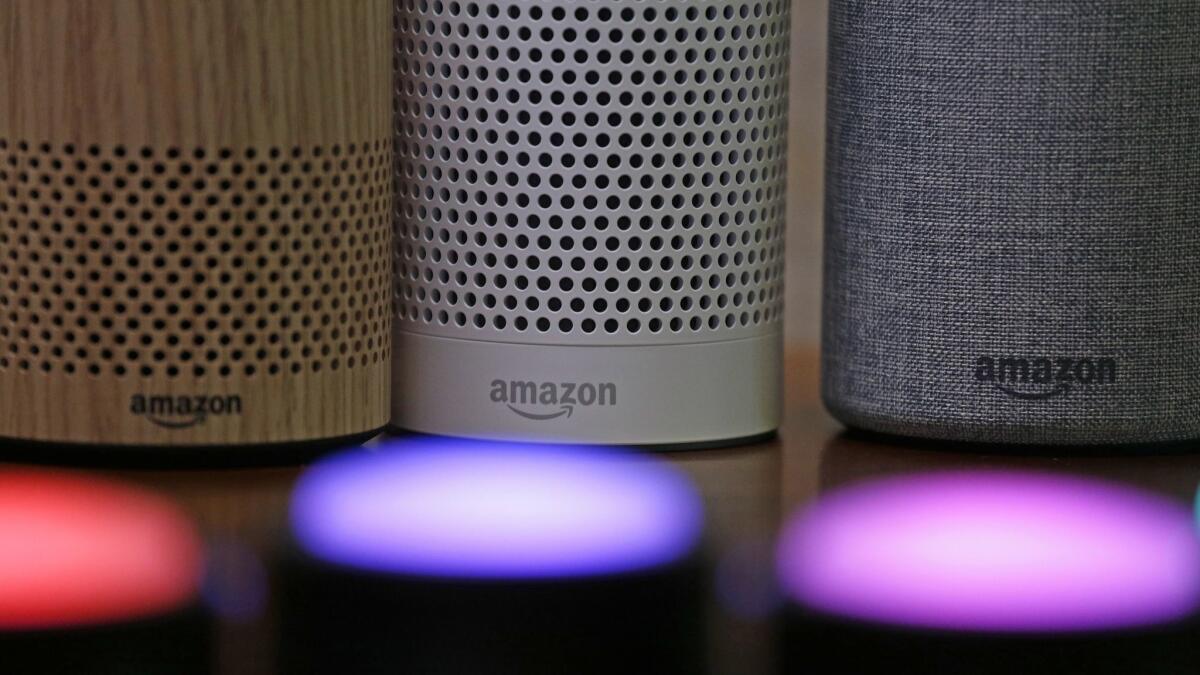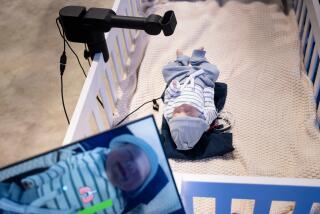‘Alexa, erase my conversations.’ California lawmakers push smart speaker privacy rules

California lawmakers embraced new privacy rules on Tuesday for consumers who purchase smart speakers like Amazon’s Alexa and the Google Home device, legislation designed to ensure that the devices don’t record private conversations without permission.
The proposed law passed on a bipartisan vote in the state Assembly even as it faced strong opposition from the technology industry. It now heads to the Senate for consideration this summer.
Assembly Bill 1395 would require manufacturers of smart speakers — which would include voice command systems built into tablets and mobile phones — to obtain permission from a consumer before the device saves recordings of commands or conversations it hears. It would create an opt-in system for consumers to consent even when the device hears certain “trigger” words designed to alert it to take action.
“They can and do record conversations that are private within our home,” Assemblyman Jordan Cunningham (R-Templeton), the bill’s author, said about the devices now sold in California and nationwide. “They have the capacity to have those conversations shared and sold without our consent.”
Amazon confirmed earlier this year that the company has technicians who listen to recordings collected by its Alexa devices, but only as a way to improve the technology. But critics have said that customers have no idea they’re being recorded by the smart speakers, which are growing in popularity.
“That trust has been breached,” Cunningham said. “We need to restore it.”
Technology companies, along with the California Chamber of Commerce, oppose AB 1395. Those groups told lawmakers earlier this year that manufacturers are already required to secure the recorded information and that a new sweeping state privacy law enacted last year ensures that consumers can force the deletion of personal information. Opponents of the bill said the devices record conversations only once they’ve been awoken to take action — and that purchasers can easily change the settings to delete those files.
Some critics of AB 1395 said Tuesday that, while they support restrictions on selling or sharing information, they remain concerned about any new limits that could affect a device’s learning ability, such as adjusting to a user’s speech patterns.
“Prohibiting the device from retaining your voice and learning from your voice, and getting trained in what you sound like when you say the ‘wake’ word, makes it a lot more likely that the device will wake up at inappropriate times and record inappropriate conversations,” said Assemblyman Jay Obernolte (R-Big Bear Lake).
The bill’s supporters said they remain open to further amendments to its language as it makes its way through the state Capitol. All bills faced a key deadline this week for action, with final action required by mid-September.
Follow @johnmyers on Twitter and sign up for our daily Essential Politics newsletter
More to Read
Get the L.A. Times Politics newsletter
Deeply reported insights into legislation, politics and policy from Sacramento, Washington and beyond. In your inbox three times per week.
You may occasionally receive promotional content from the Los Angeles Times.







